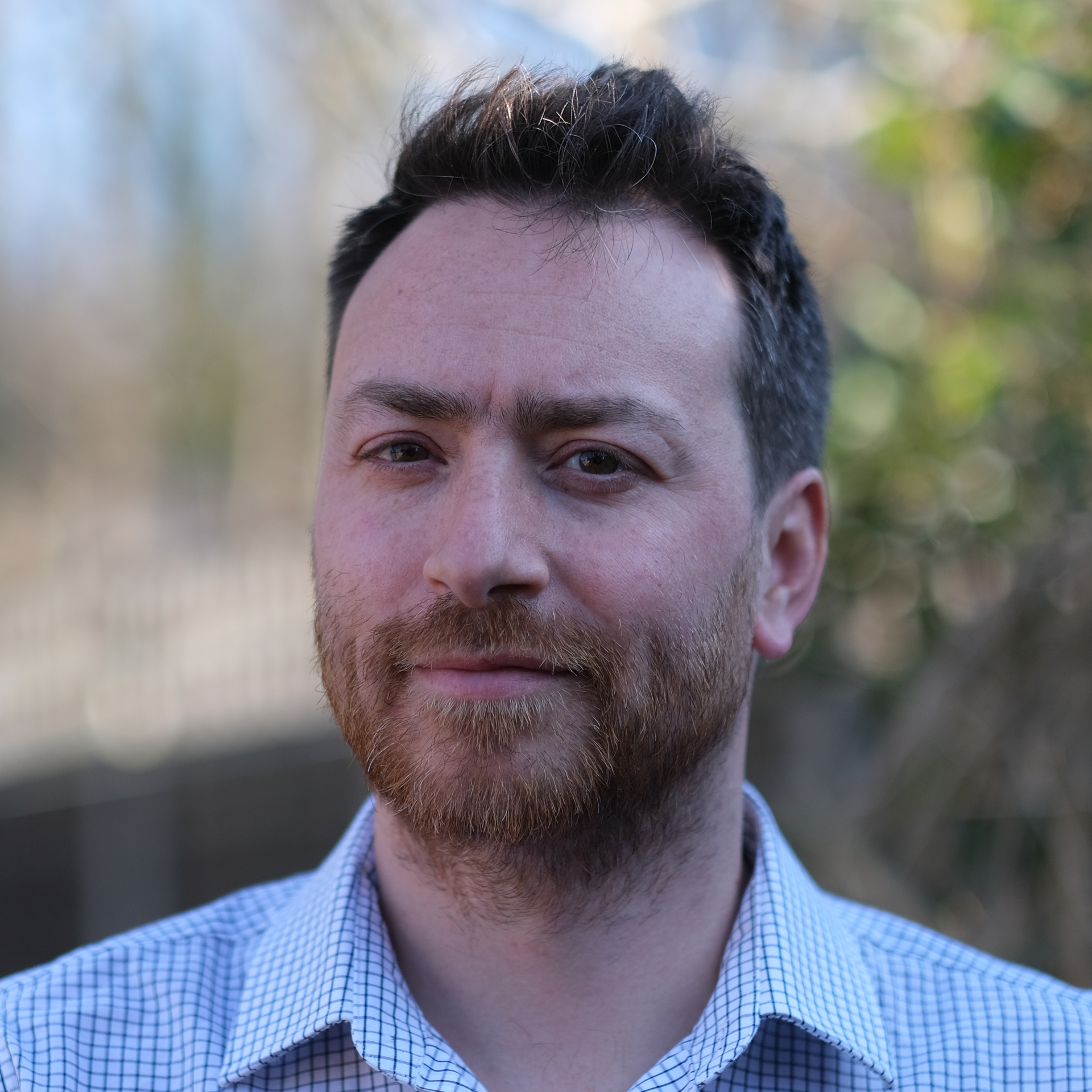There's never been a better time to play BioShock — here's why
BioShock is 15 years old this week — and a trip to Rapture is as compelling as ever
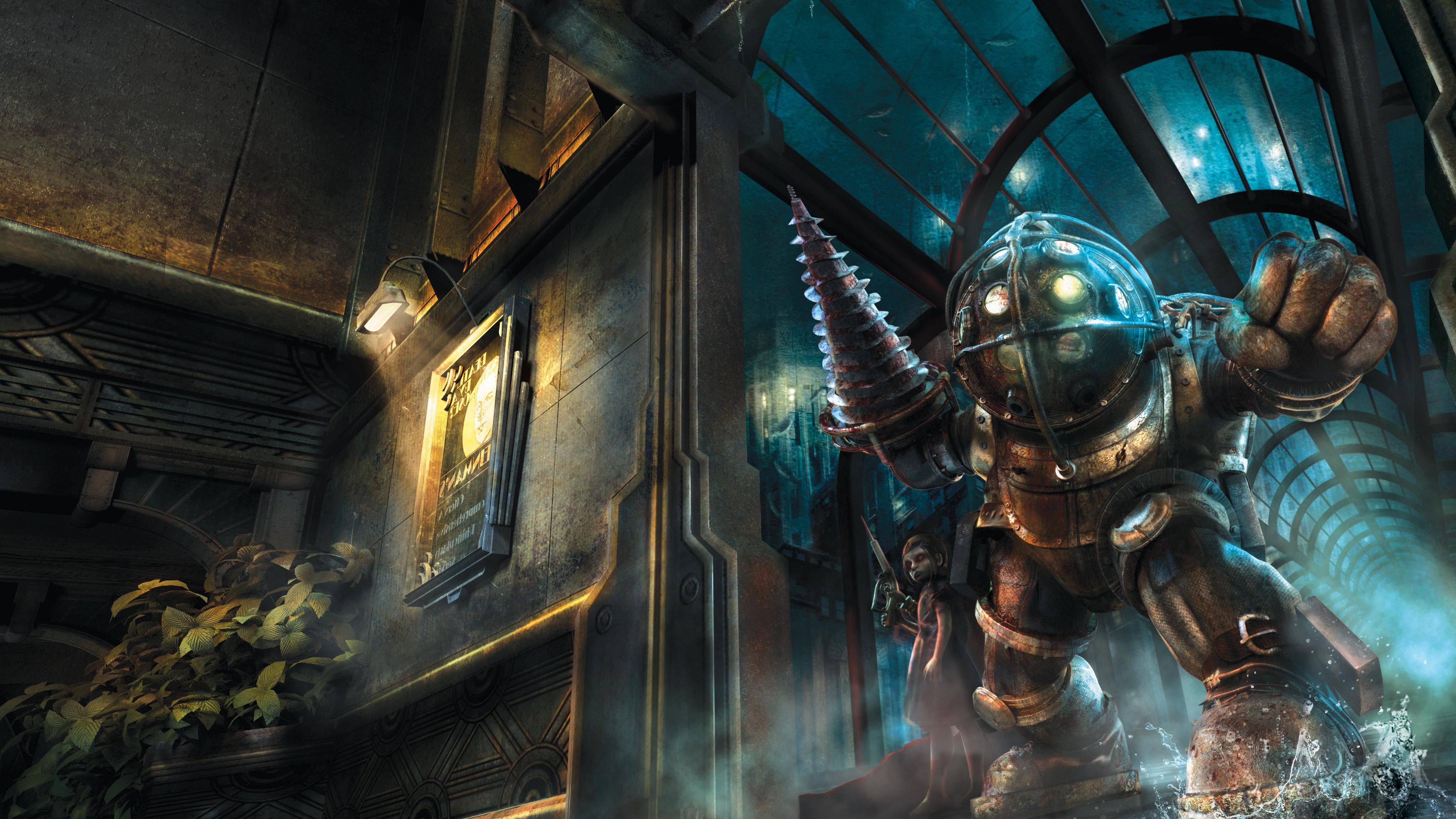
Welcome! This column is part of a regular series in which we share what members of the Tom's Guide staff are playing and enjoying right now, with an eye towards helping you find great games that you may have missed. Be sure to check out our previous entry, where we talk about Rollerdrome.
I'm always slow to complete games, but 14 years is a long time even for me. That's the scenario that's just played out with BioShock — a title I started on PS3 in 2008, but which I have only finally completed on Nintendo Switch OLED this week.
Well, it was worth the wait. BioShock — which turned 15 this week — was a superb game when it launched on Xbox 360 and Windows, and it's stood the test of time better than almost any alternative from that era.
Partly that's due to the fact that it received a visual upgrade in 2016's BioShock: The Collection, but mostly it's because this is a game in which the story and setting are so expertly crafted, they effectively render the experience timeless.
If you've not yet played it, you should rectify that immediately. Here's why.
Welcome to Rapture
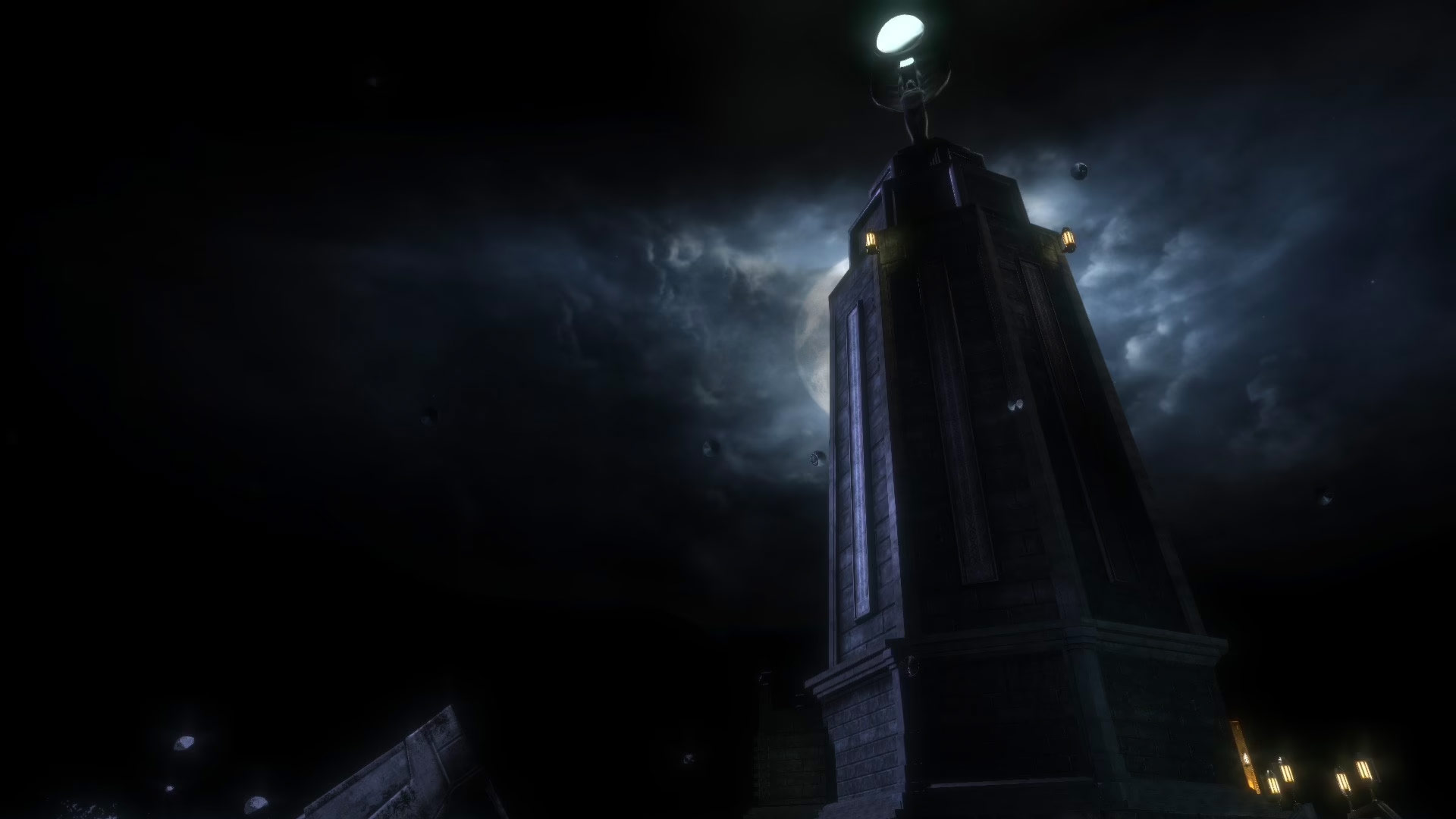
That BioShock is not your average first-person shooter/RPG is clear within a minute of firing it up.
Plunged into the sea after a plane crash, you make for the apparent safety of a lighthouse. Inside, you're greeted by a statue holding up a banner that reads "No gods or kings. Only man." No, not a friendly robot or a gruff military commander or even a post-apocalyptic wasteland, but an Art Deco statue and a philosophical slogan.
Moments later you're travelling into the depths of the ocean in a bathysphere, past ornate monuments and colorful fish, while a video introduces you to Rapture, "a city where the artist would not fear the censor. Where the scientist would not be bound by petty morality. Where the great would not be constrained by the small." Once again, it's clear that this is not a Call of Duty-style shooter but something quite different indeed.
Of course Rapture is no salvation; rather, it's a nightmare underwater city inhabited by deranged 'splicers', tormented 'Little Sisters' and the truly terrifying 'Big Daddies.' It's also a place where the philosophy of Objectivism reigns and where it's everyone for themselves — and it's this last element that really separates BioShock from the mass of FPS games.
Philosophy 101
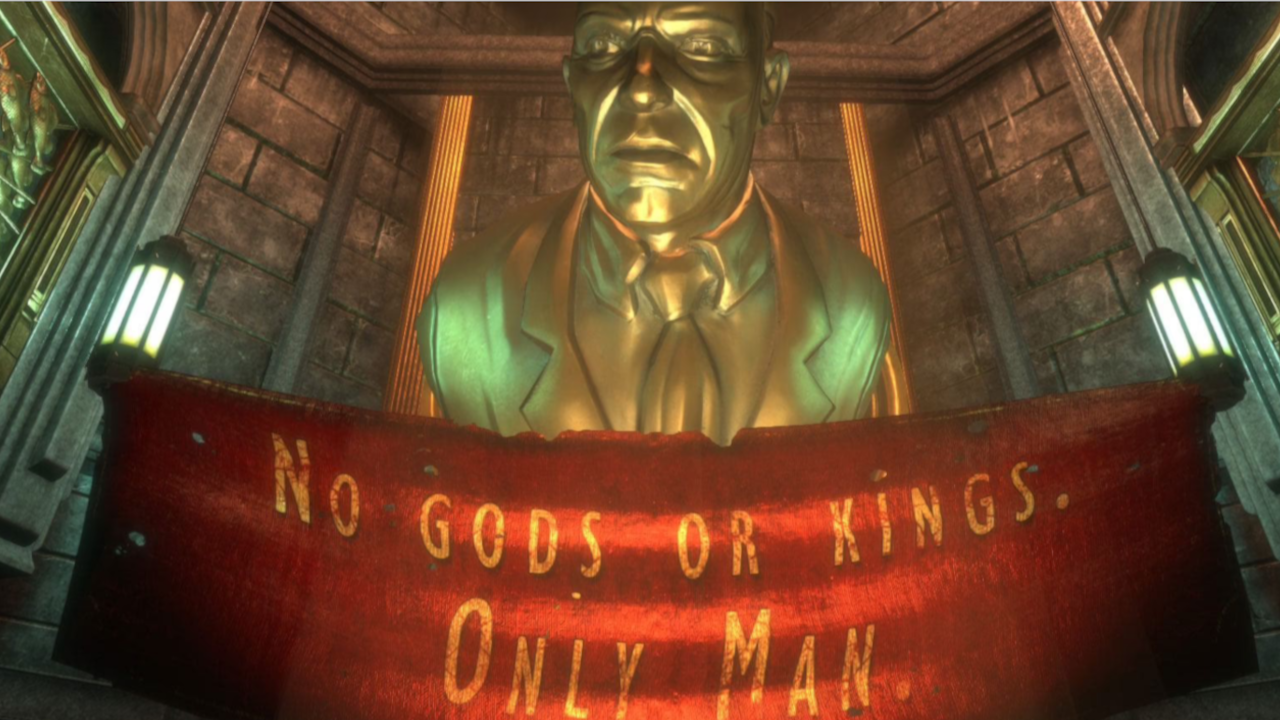
Many of the best games have a compelling story, but the number that use a controversial philosophical doctrine to underpin it can probably be counted on the fingers of one hand. And three of those are BioShock and its two sequels.
Don't worry, I won't delve too far into the theory here, but a brief overview does help explain BioShock's enduring appeal.
The game's lead developer Ken Levine came up with the philosophical concept behind the story after a visit to the Rockefeller Center; the character of Andrew Ryan, Rapture's founder and ruler, is at least loosely based on John D. Rockefeller, Jr.
The story also draws heavily on the writings of Ayn Rand and her doctrine of Objectivism as outlined in the novels The Fountainhead and Atlas Shrugged.
Rand's philosophy, in essence, is "the concept of man as a heroic being, with his own happiness as the moral purpose of his life, with productive achievement as his noblest activity, and reason as his only absolute." Or, to put it more bluntly, selfishness is a virtue — which, as it happens, is the title of another of her works.
Far from being a forgotten idea from the mid-20th century, Objectivism has been hugely influential in libertarian circles, so it's very much still relevant now. Taken to its extremes, as it is in BioShock, it leaves Rapture as a crumbling dystopia where wealth disparities are even more pronounced than they are in the outside world and where science has created literal monsters out of little girls.
You don't need to care about any of this in order to play BioShock, of course. But there's no doubt that it's a more effective (and affecting) story with some genuine character development behind it. The actions of Ryan, the gangster antagonist Frank Fontaine, the insane artist Sander Cohen and others are all the more believable when presented in this context.
None of this would matter much if BioShock didn't offer compelling gameplay too, though. Fortunately, that's not a problem.
Gene genius
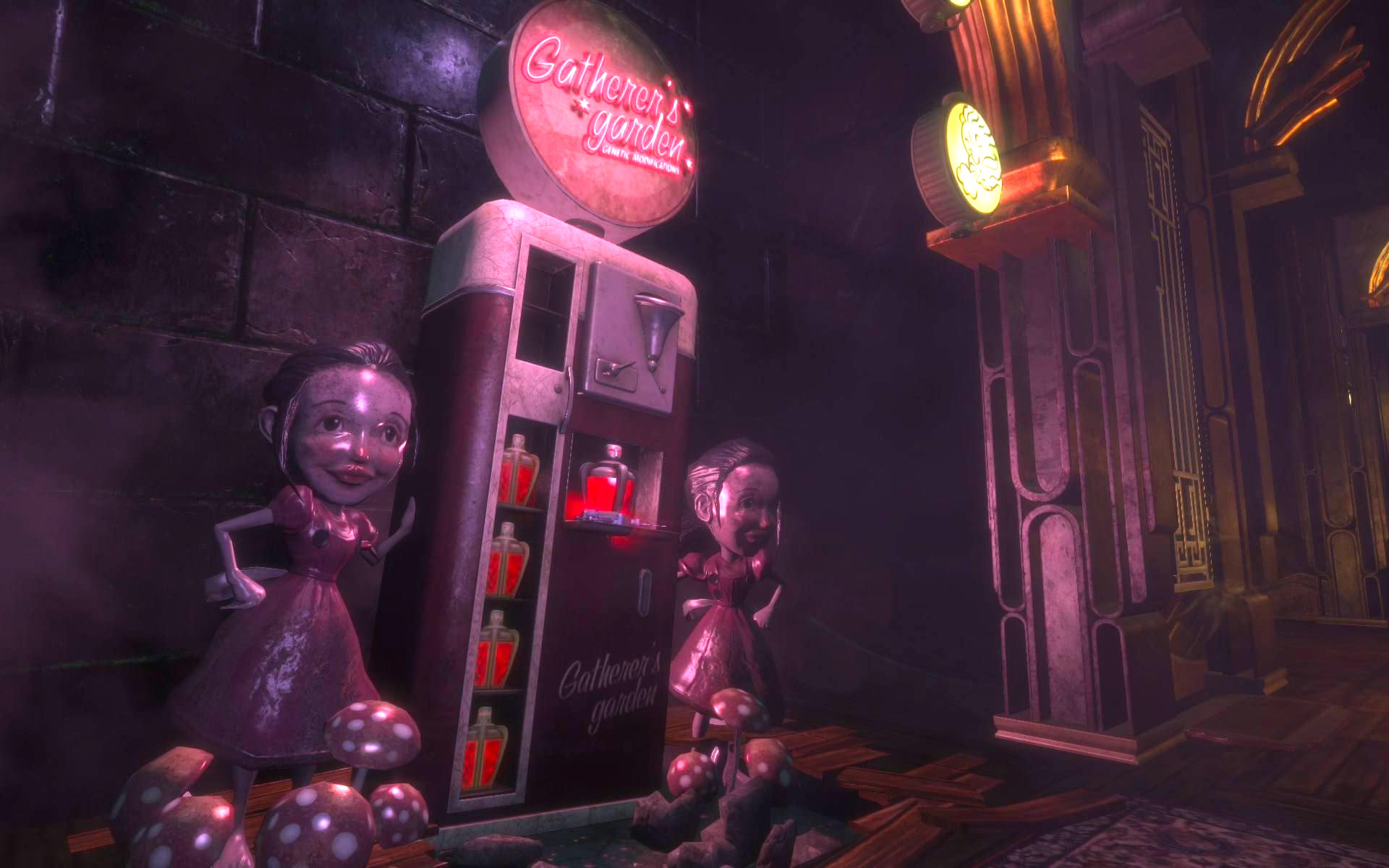
If BioShock's story hasn't dated a jot since it first started garnering Game of the Year awards, its gameplay has inevitably fared slightly more poorly. But only slightly.
Though there are 15 distinct levels, it's not a particularly long game, with around 10-20 hours of gameplay depending on how much of a completist you are. In my case, it took me 40 hours — but I'm an ultra-completist and was also playing on the hardest setting (because I'm a masochist).
That fairly short length right away dates it compared to most games these days, as does the relatively linear nature of the levels. There are typically a few branching paths, and most levels have multiple rooms to explore, but there's very much a feeling that you're progressing from the start to the end and there are no secondary objectives. It's more Doom than Destiny.
As it happens, I quite enjoyed that aspect of it, finding the more compact level design to be a refreshing change from modern open-world fare. In fact, it was a particular antidote to Breath of the Wild, another game that I recently completed (yeah, yeah, my backlog is looooong). I'm not saying it's better (it's not, just different), but variety is the spice of life and all that.
There are some rudimentary RPG elements to BioShock, but it's essentially an FPS with a few extras. You get a very limited ability to level-up your weapons — standard fare such as the ever-faithful shotgun and machine gun, plus a really effective crossbow — but this element is most keenly felt with your plasmids.
These are sort of super-powers made possible by gene splicing, and are integral to the story. Not only can you increase their effectiveness as the game develops, but you also have to think quite carefully about which you equip at any given time, because you don't have enough slots for them all.
That decision can have a huge effect on your gameplay, enabling you to proceed stealthily or all-guns-blazing as you prefer. I quickly decided that a combo of Incinerate! and Armored Shell — basically shooting fire from my hands while taking less damage — was a lot more fun than crawling around and hacking security cameras.
Little Sisters and Big Daddies
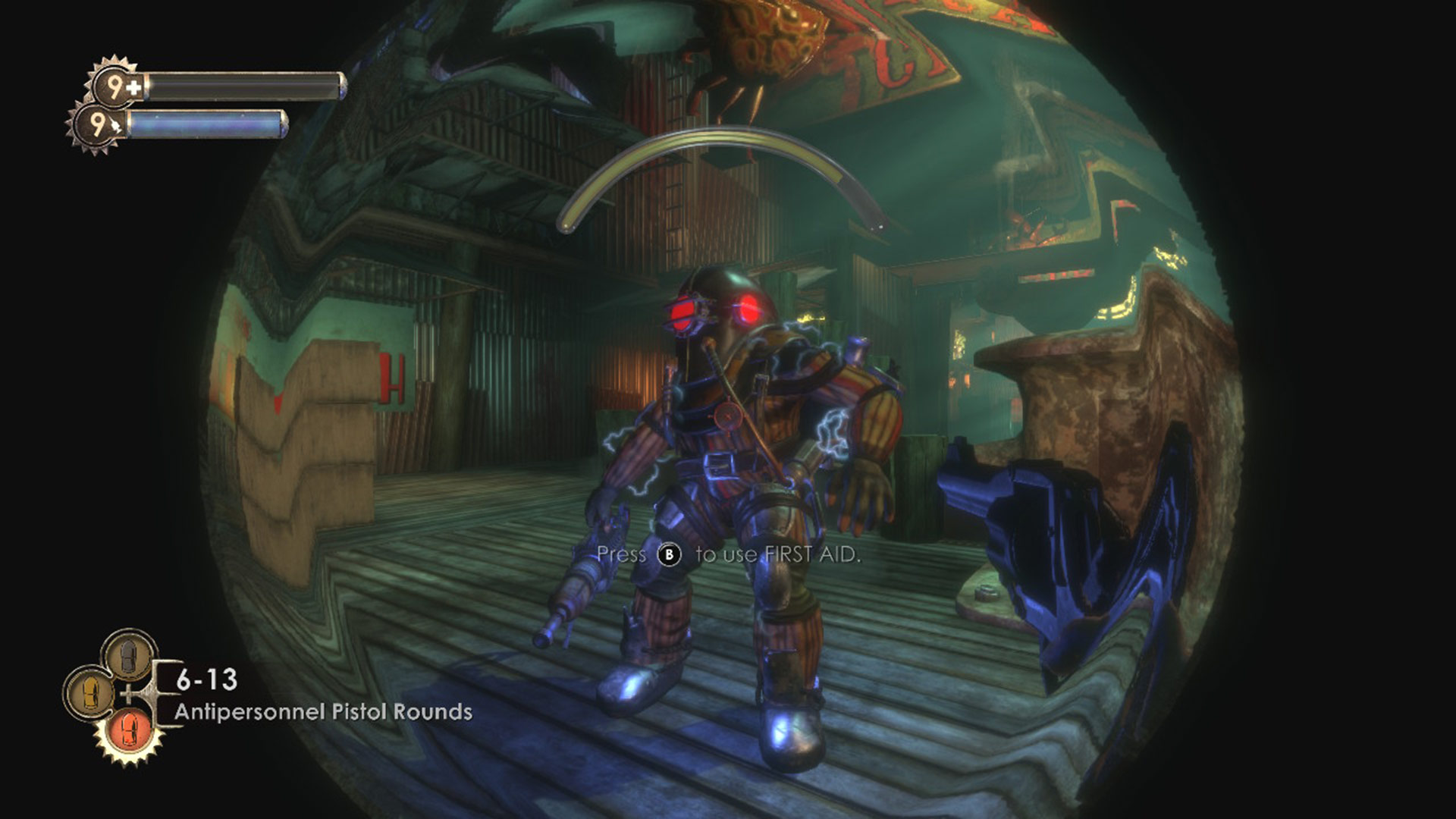
For the most part, BioShock proceeds as many FPS games do; you creep along corridors collecting ammo and shooting the baddies, while working towards an endgame Boss Fight. The level design, decaying Art Deco aesthetic and complex storyline lift it well above the standard fare, but it doesn't reinvent the wheel.
However, no other game offers anything to compare to the terrifying combo of BioShock's Little Sisters and Big Daddies. The Little Sisters are genetically modified children who stalk Rapture in search of ADAM, the chemical substance that enables plasmids to work. They're not dangerous in themselves, but they're accompanied and protected by the Big Daddies — who most definitely are. Pretty much walking diving suits with an array of powerful weaponry, these are one of the toughest enemies you'll face in any game. You will undoubtedly die the first time you take one on. And the second. And probably the third and fourth.
Unfortunately, you can't avoid them, because in order to level up your plasmids you need ADAM — and in order to get ADAM you need to either kill or save Little Sisters. And that means first taking on and defeating a Big Daddy.
Once you manage that, you still have a decision to make, because if you choose to kill, or 'harvest', the Little Sister you get more ADAM than if you save them. But on the flip side, saving them is surely the right thing to do. That's ultimately between you and your conscience, but it's another example of BioShock's clever ability to weave philosophical concerns into a game about an underwater city populated by mutants. (I chose to save them all, of course; I'm not a monster.)
Just play it already
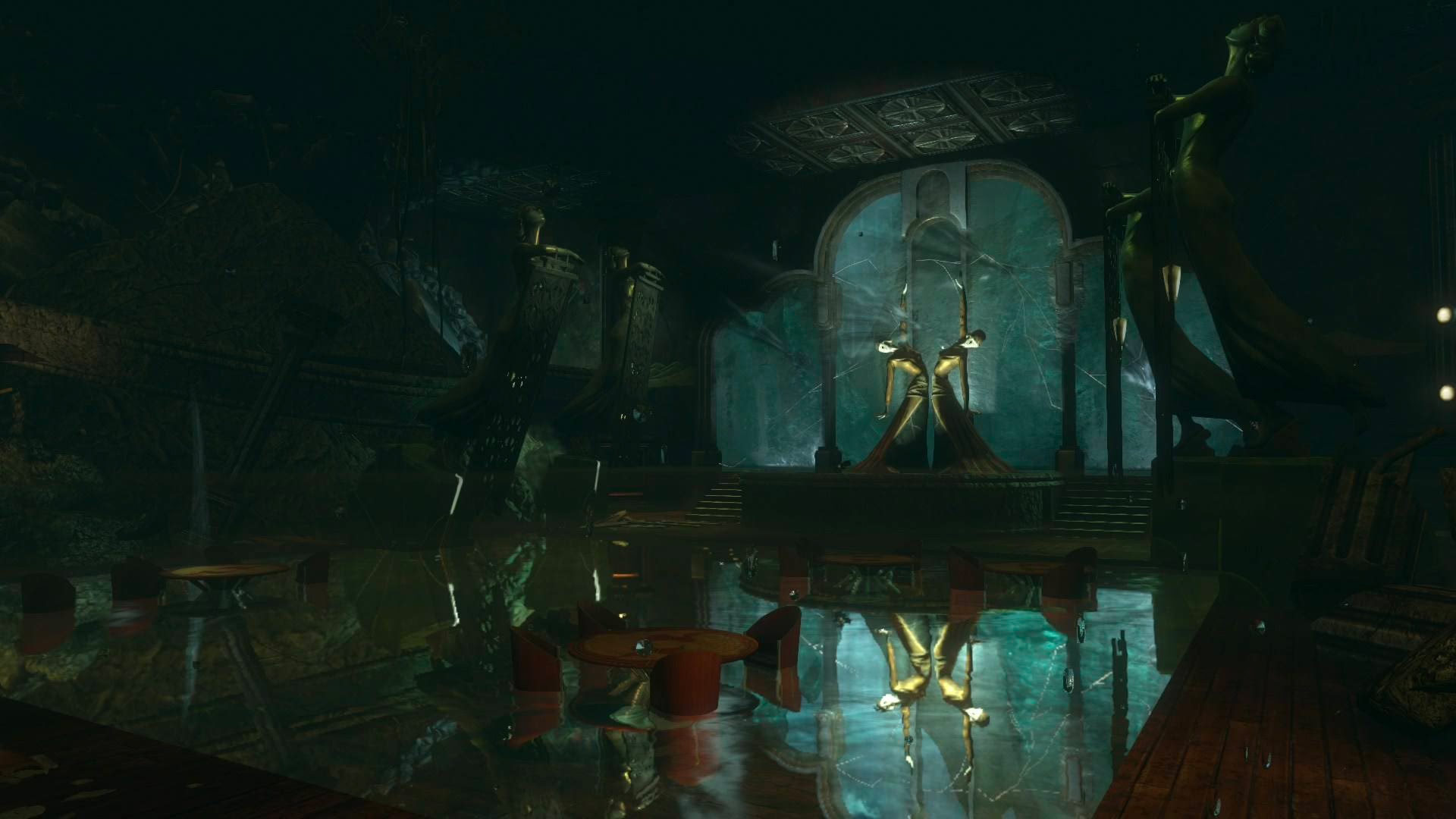
It's a curious fact that exactly 15 years after its initial release, BioShock is arguably more relevant than ever. The arrival of the remastered BioShock Collection in 2016 introduced it to a new generation, while the Nintendo Switch version in 2020 gave that console a genuinely groundbreaking first-person shooter.
What's more, Netflix is moving forward with a movie adaptation of the game, and just this week appointed Hunger Games director Francis Lawrence to direct it, and Michael Green to adapt the script. Maybe off the back of this we'll even get the long-awaited BioShock 4.
I very much hope so, but there's no rush as far as I'm concerned: I've still got BioShock 2 and BioShock Infinite to play, and judging by my previous timeline I won't be done with them for another 28 years.
Next: Here is why the 10-year-old PlayStation Vita still beats the Nintendo Switch.
Sign up to get the BEST of Tom's Guide direct to your inbox.
Get instant access to breaking news, the hottest reviews, great deals and helpful tips.
Formerly Editor in Chief (U.K.) on Tom’s Guide, Marc oversaw all gaming, streaming, audio, TV, entertainment, how-to and cameras coverage, and was also responsible for the site’s U.K.-focused output. He is now U.K. Editor in Chief on TechRadar. Marc previously edited the tech website Stuff and has tested and written about phones, tablets, wearables, streaming boxes, smart home devices, Bluetooth speakers, headphones, games, TVs, cameras and much more. He also spent years on a music magazine, where his duties mainly involved spoiling other people’s fun, and on a car magazine. An avid photographer, he likes nothing better than taking pictures of very small things (bugs, his daughters) or very big things (distant galaxies). When he gets time, he also enjoys gaming (console and mobile), cycling and attempting to watch as much sport as any human can. He's also fallen in love with Wordle over the past six months and is the author of our today's Wordle answer column, in which he supplies hints and strategy tips for the mega-popular word game. Given he's completed every single Wordle so far and only lost once, and analyzed every Wordle answer in search of patterns, he's well qualified to help you safeguard your streak.
